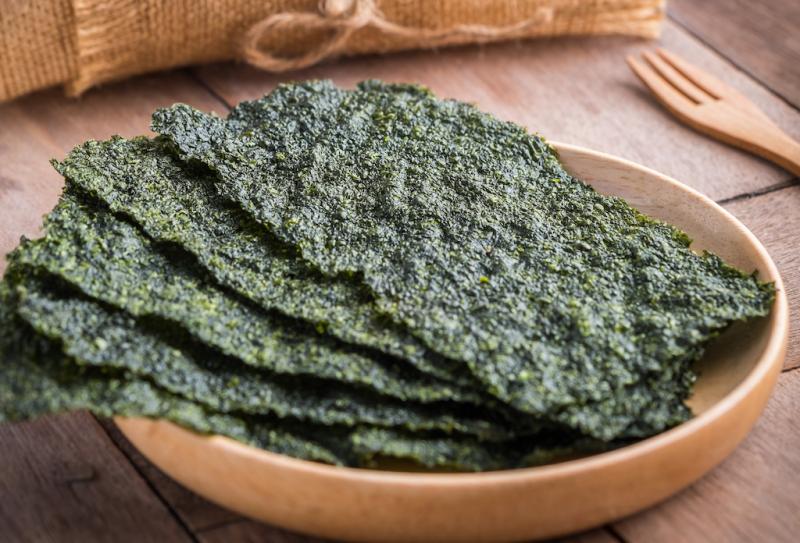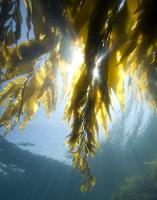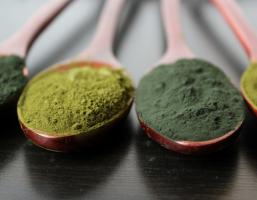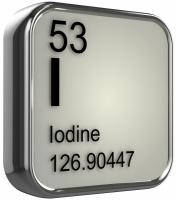
 The ocean is considered the cradle of all life and foods from the sea have long been prized by native populations. For starters, plants and animals from the sea are the richest sources of an essential nutrient not found in most land-based foods—iodine. Iodine is a vital component in thyroid hormones and is essential to the health of every cell in the body. This may be why unrefined sea salt and seaweeds were often transported far inland as trade commodities in ancient times.
The ocean is considered the cradle of all life and foods from the sea have long been prized by native populations. For starters, plants and animals from the sea are the richest sources of an essential nutrient not found in most land-based foods—iodine. Iodine is a vital component in thyroid hormones and is essential to the health of every cell in the body. This may be why unrefined sea salt and seaweeds were often transported far inland as trade commodities in ancient times.
Most of us are familiar with fish and shellfish from the ocean, but sea vegetables—seaweeds like kelp and dulse—are not a common part of American diets. This is a shame because these foods not only contain iodine, they are rich in numerous trace minerals for healthy bones, skin, hair and general health. Many also contain valuable mucilaginous fibers that absorb heavy metals and other toxins. They can also be rich in protein and vitamins.
Seaweeds are a type of algae and there are also fresh-water algae that have health benefits, like spirulina and chlorella. The algae are one of the richest sources of easily assimilated amino acids. They can help to balance blood sugar and brain function, while increasing energy and reducing appetite. They can also help the body detoxify from heavy metals and other contaminants.
In this issue of Sunshine Sharing we’ll explore the value of algae and the supplements made from them. We’ll also discuss the importance of iodine and the value of seaweeds in thyroid health.
The Nutritional and Medicinal Value of Seaweeds
The composition of mineral electrolytes (sodium, potassium, calcium, magnesium and chlorine) in sea water is very similar to the balance of these minerals in our own blood. In fact, it could be argued that when animals moved out of the sea and onto the land, they simply carried the saltwater medium their cells needed within their bodies in the form of blood plasma.
Consequently, it shouldn’t surprise us that plants from the sea are rich in the minerals the body needs to survive. As previously mentioned, one of these elements is iodine, but sea vegetables can also provide us with other trace elements like iron, copper and zinc, as well as macro minerals like calcium, magnesium, sodium and potassium.
Seaweeds are also great sources of mucilaginous fiber, which can absorb toxins, sooth irritated tissues and act as a bulk laxative. They can be very healing to the mucus membranes of the gastrointestinal tract. They are also very beneficial for the health of the skin when used in baths, poultices, soaks or other topical applications because they help to soften and moisturize the skin.
Many seaweeds are used in traditional Chinese medicine (TCM). Generally speaking, they are considered cooling, sweet, and salty and are indicated when there is swelling or a hardened mass in the body. They soften the hard, swollen tissues, reduce heat and irritation and help to loosen hardened phlegm or mucus. TCM, like Western herbalists, also use seaweeds for thyroid problems, specifically goiter.
Additional Resources
PDR for Nutritional Supplements by Sheldon Saul Hendler with David M. Rorvik
Kelp, Dulse and Other Sea Supplements by William H. Lee
The Great Iodine Debate by Sally Fallon Morell
Strategies for Health by Steven Horne
Become a Member
Steven Horne's monthly member program is a way for you to get great information about herbs and natural healing to build your herbal business. Including the ability to share issues of Sunshine Sharing like this one. Click here to learn more.


